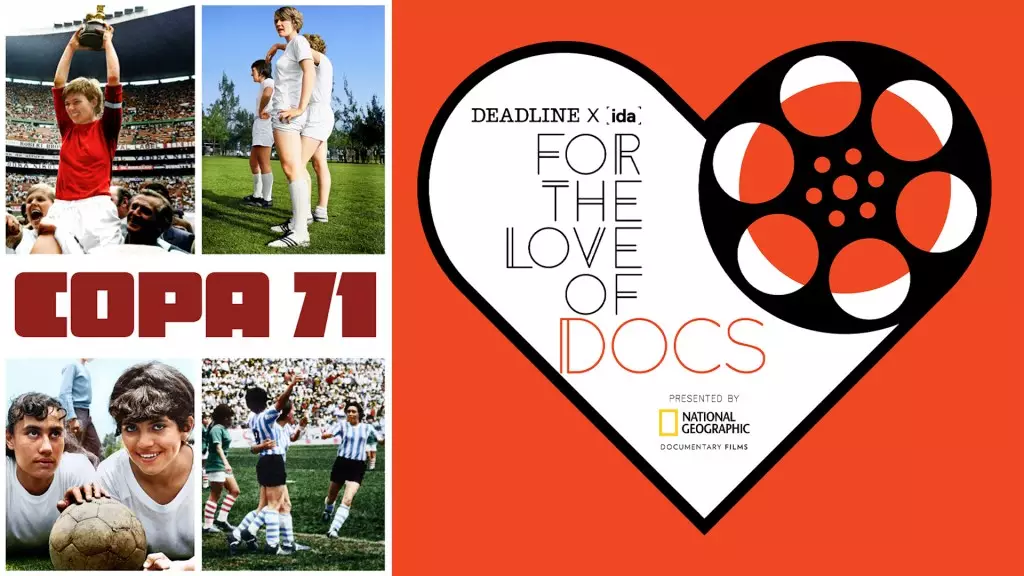In the annals of sports history, the year 1971 marks an inspiring yet often overlooked chapter within the realm of women’s soccer. At Azteca Stadium in Mexico City, a groundbreaking event unfolded: the (unofficial) Women’s World Cup. This tournament drew an astonishing attendance of over 110,000 fans, a record for any women’s sports event that still stands today. Yet, the significance of Copa 71 extends beyond mere numbers; it encapsulates a vivid representation of the struggles, challenges, and triumphs faced by women athletes at a time when the sports world largely ignored their contributions.
Copa 71 is now being resurrected through the documentary “Copa 71,” which aims to shine a light on this pivotal moment and raise awareness about the systemic neglect faced by women’s soccer throughout history. Directed by Rachel Ramsay and James Erskine, along with writer-producer Victoria Gregory, this film navigates through time to re-establish a narrative that many have intentionally or unintentionally forgotten. The documentary encapsulates not only the excitement of the tournament but also the grim realities the players faced in that era.
The inception of “Copa 71” stemmed from a casual conversation, sparked by a radio narrative about one of the English teams. Gregory learned about the tournament’s deep wealth of untold stories and realized it was high time for these players’ legacies to be recognized. The endeavor began with painstaking efforts to uncover archival footage and connect with surviving athletes, who had previously kept their experiences largely private. The challenge was twofold: rebuild trust among the former players, many of whom felt alienated from their sport and its media representation, and successfully spotlight their often-tragic yet empowering stories.
In conversations with the players, it became evident that the fear of further exploitation loomed large. Many athletes were cautious due to earlier mistreatment in the media, which had a tendency to sexualize and belittle their contributions to the sport. For those who had participated in the tournament, their moment of glory was often overshadowed by a media culture that perceived women in sports more as curiosities than serious athletes. As Gregory explained, the relationships forged during the documentary’s creation were about more than just the film; they were about reclaiming narratives and honoring the dignity of the players’ experiences.
Understanding the historical context of Copa 71 is essential to appreciate its contemporary significance. The tournament was not officially sanctioned by FIFA—an organization that didn’t recognize women’s soccer until 1991—leading to severe neglect and a lack of support, both financially and socially. The dynamics of power and control underscored this event: FIFA viewed women’s soccer as a threat to its male-centric governance of the sport and responded with indifference.
This scrutiny of power dynamics resonates in light of contemporary incidents, such as the recent controversy involving Luis Rubiales, then-president of the Royal Spanish Football Federation, who forcibly kissed a Spanish player during a medal ceremony after the 2023 Women’s World Cup. Such actions invite critical discussions about the ongoing prevalence of sexism and the struggle for respect and recognition in women’s sports—a dialogue that mirrors the sentiments expressed by athletes in 1971.
Ramsay articulated the key themes of the documentary: financial independence, physicality, and the right to self-expression. While the context may have shifted over the decades, the underlying issues of sexism, exploitation, and the battle for recognition remain as relevant today as they were half a century ago. The film serves as a reminder that the fight for equality is ongoing and that the courageous efforts displayed at Copa 71 were the stepping stones towards greater acknowledgment of women in sports.
“Copa 71” not only seeks to celebrate a historic event but also prompts a necessary examination of how far we’ve come—and how far we have yet to go. The documentary serves as a testament to the power of their stories; these women carved paths in a world that often sought to dismiss them. The implications of their efforts reach beyond soccer, challenging societal perceptions of women’s roles in sports and pushing for greater equality and respect.
Through its poignant narrative, “Copa 71” invites audiences to reflect on the evolution of women’s soccer and the sports landscape at large, reminding us that acknowledging the past remains crucial for paving the way forward. As we approach the ongoing challenges facing women in sports, this documentary underscores a fundamental truth: every player deserves the right to be heard, respected, and valued—not just on the field but in society as a whole.
